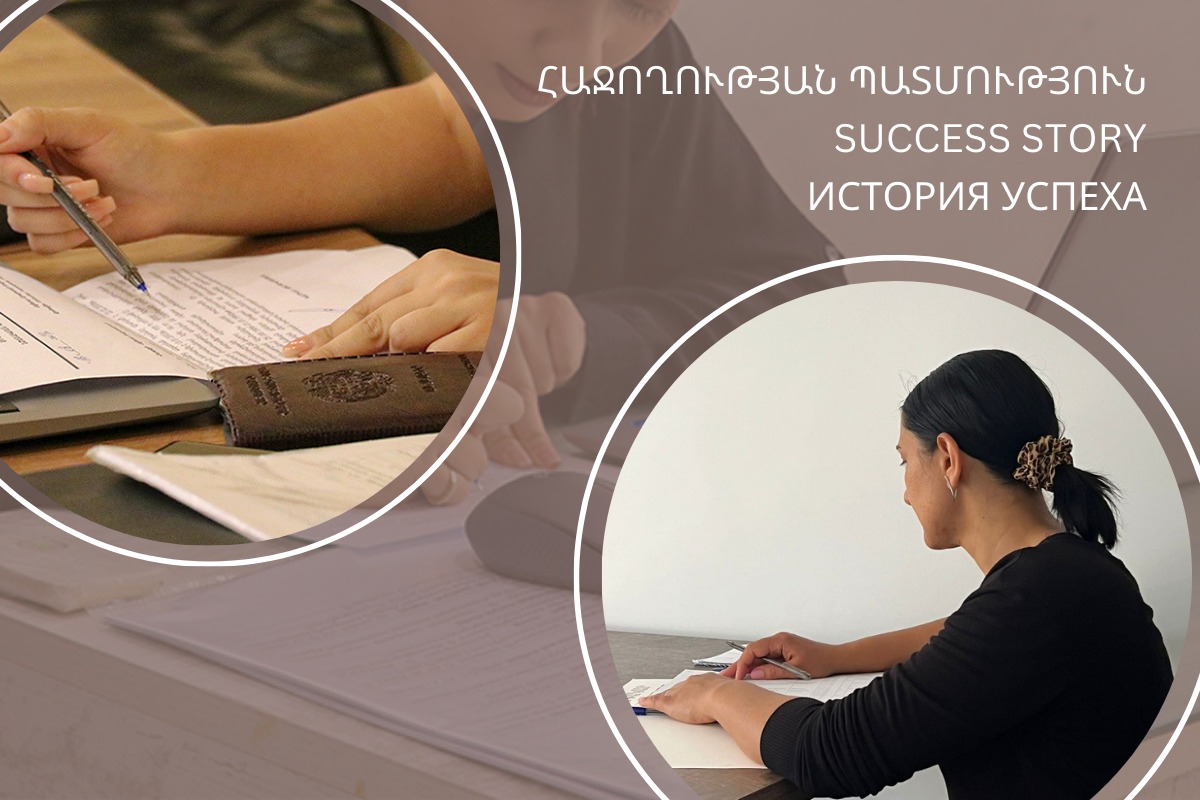Artsakh Armenian single mother reclaims family rights: ALA's latest success story

In September 2023, amid the military onslaught unleashed by Azerbaijani armed forces against Artsakh, Sinara Mkrtchyan and her two minor children found themselves among the forcibly displaced. Like tens of thousands of fellow Artsakh Armenians, they were compelled to abandon their hearth and home, seeking sanctuary in the Republic of Armenia.
Upon relocation to Armenia, the Mkrtchyan family confronted a myriad of challenges, with the most pressing being access to social assistance. "Initially, I presumed the support funds were being disbursed in installments," Sinara recounts. "However, I soon discovered they had factored in property registered under my late husband's name. This was a gross injustice, as I held no legal claim to that asset."
The situation further deteriorated when Sinara realized the allocated sum was woefully inadequate to cover even the most basic necessities. She faced an agonizing dilemma: secure shelter or provide sustenance for her children.
Despite these dire straits, Sinara's resolve remained unshaken. Determined to defend her and her children's rights, she learned of the Armenian Lawyers' Association (ALA), a non-governmental organization. With support from the European Union, ALA spearheads the "Strengthening Protection Mechanisms for the Rights of Forcibly Displaced Persons from Nagorno-Karabakh" project.
Upon familiarizing themselves with Sinara's case, ALA's legal counsel immediately sprang into action. "Sinara's narrative was profoundly moving," the lawyer notes. "We recognized that this case could potentially expose systemic flaws affecting numerous displaced families."
ALA's specialists embarked on a meticulous examination of Sinara's case. They unearthed discrepancies between various appendices of the government's decree, which had led to an erroneous calculation of the support amount. Undeterred by bureaucratic hurdles, the lawyers persevered in their fight for Sinara's rights.
ALA presented a comprehensive set of arguments to the Unified Social Service (USS), demanding a reassessment of the support allocated to Mkrtchyan and her minor children. They also insisted on retroactive compensation for the shortfall in previous months' payments.
The legal team's tenacious efforts bore fruit as the USS revised its decision. The support amount for Sinara Mkrtchyan and her children was recalculated, reaching 50,000 AMD—a fivefold increase from the previous sum.
"When I received the news, I was overwhelmed with emotion," Sinara shares. "At that moment, I realized we could begin rebuilding our lives, even as the pain of our losses remains raw. This sum represents more than financial aid; it's a testament to the protection of our rights and the restoration of justice."
This case exemplifies how ALA, in collaboration with the "NGO Network for the Protection of Rights of Forcibly Displaced Persons from Artsakh," champions the rights of Artsakh Armenians during this tumultuous period.
"Our mandate extends beyond individual case advocacy; we strive for systemic reforms," elucidates the ALA representative. "Sinara's case illuminated legislative and policy gaps that potentially harm vulnerable groups. We are committed to bridging these gaps."
ALA urges all Artsakh Armenians to utilize the Platform for the Protection of Artsakh Armenians' Rights to safeguard their interests. "Through collective action, we can achieve justice and uphold our rights during these trying times," the ALA representative concludes.
The story of Sinara and her children's rights restoration is not merely a victory for one family; it serves as a beacon of hope for all those still battling for their rights in the wake of Azerbaijan's forced displacement campaign. It demonstrates that even under the most adverse conditions, with determination and professional support, it is possible to assert one's rights and secure justice. This ALA success story reaffirms that the professionalism, integrity, and dedication of legal practitioners can play a pivotal role in establishing social justice and protecting the rights of vulnerable groups.